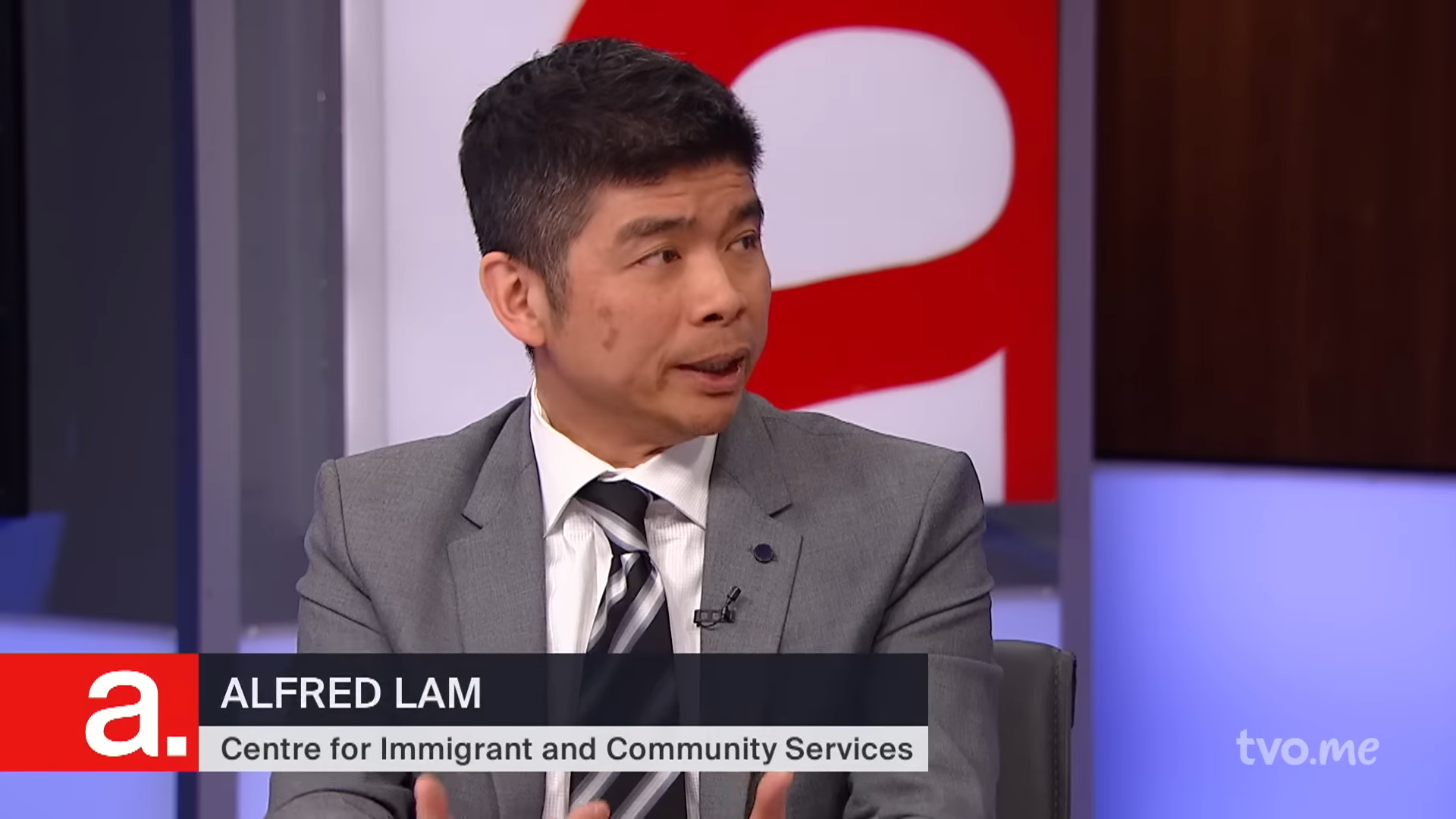Alfred Lam appeared on The Agenda with Steve Paikin on TVO (aired on April 6, 2023) as CICS’ Executive Director and Board Chair for the Ontario Council of Agencies Serving Immigrants (OCASI) to discuss immigration-related issues ranging from the economy and housing to anti-immigration sentiments.
Excerpts from the show are below, or watch the clip here.

(Photo credit: screenshot from The Agenda with Steve Paikin)
On viewing immigration through the human rights lens:
“If Canada is serious about being a country that is building ourselves on immigration, then we need to learn some fundamental truths. For instance, we need to understand that a person's human rights are not a function of his or her immigration status, right? So whether someone is an asylum seeker or international student or permanent resident, they have inalienable and fundamental human rights. And for us, learning to uphold and protect that, you know, it becomes a foundation through which we can then build for the long term.”
On whether the housing crisis is an immigrant-driven problem:
“Quite often, when we look at immigration, immigrants are either looked upon as an easy solution to a deep-rooted problem we have, or sometimes they are targeted as a problem that is really - it goes much more, you know, deeper and more systemic than that. I think the housing situation is a perfect example of that. The truth of the matter is, even if you shut down immigration tomorrow, we will still have a housing crisis… and the clearest evidence of that is throughout the pandemic years because of border closures and things like that, incoming immigration has drastically reduced. We still have a housing crisis.”
“We don't have a choice but to be committed to bringing in immigrants for economic reasons, population growth reasons, market reasons. So that's not a should we or should we not, we don't have a choice. And the point now is, okay, we need to do this, but we need to realize that it's not about how many people you bring in, right? We're talking about the systemic supports, like housing being one of them. The housing situation, economically speaking, it's a supply-demand issue, right? So often we blame the immigrant part of the equation as raising the demand, but the reality is there are systemic, historic political reasons that created this immense shortage of supply that we're seeing.”
On the lack of cohesive planning across the three levels of government:
“When an immigrant comes into the country, that's one of their struggles, figuring out who to go to for what and who does what. So I think part of the issue we're facing now, I mean, even with, you know, a situation where we bring in newcomers from Ukraine given the recent crisis, right? Figuring out who is supposed to pay for the bills for the hotel rooms, right? Is it a municipal issue? Is it a provincial issue? Should it come from the feds? So it becomes this issue that gets bounced back and forth and back and forth, and so this lack of cohesive planning that needs to happen to solve.”
On anti-immigration sentiments in Canada:
“Those sentiments always exist, and it's looking for these sort of flash points to set it off. COVID became a prime example of that... I think what we need to do is that when we bring in people, we attack it, or we look at the situation at a systemic level. It's not just about plucking numbers, it's not just about a math equation, I need X number of thousands of people, I bring in X number of thousands of people.”
“We are a compassionate nation. We are a welcoming nation. All those things are true. But let's not kid ourselves. That type of sentiment has always existed, it exists, and every time we see a situation that could become a setting off, a flash point, we see that coming up to the surface.”






